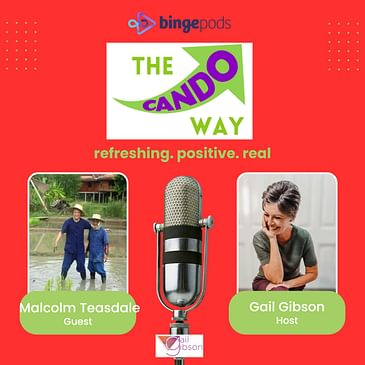In this episode of The Can Do Way, I am talking to Malcolm Teasdale, Entrepreneur, Storyteller, Author, and Travel Addict.
British and American citizen Malcolm was able to take early retirement when he sold his technology company in 2013.
After travelling on business for more than 30 years to the major cities and business hubs around the world, he now travels to the more unusual destinations in search of rich cultural and educational experiences. Think Nepal, Mongolia, Tibet, Bhutan, and Borneo to name a few.
Today, his public speaking engagements focus on entrepreneurship, adventure travel, destinations around the world and foreign cultures.
A curious adventure traveller to 118 countries (to date) who says he will consider settling down at the grand old age of 95.
Choosing a life well-travelled, Malcolm’s Can Do story is filled with opportunity, adventure, and respect for all global citizens.
Listen for Malcolm’s Can Do tips:
- Have no regrets.
- Seize opportunities.
- Respect how others live.


